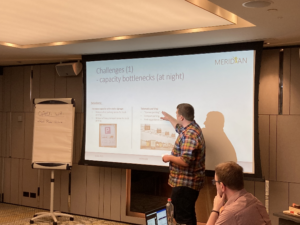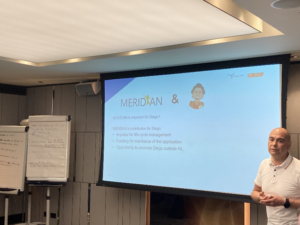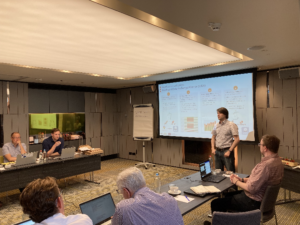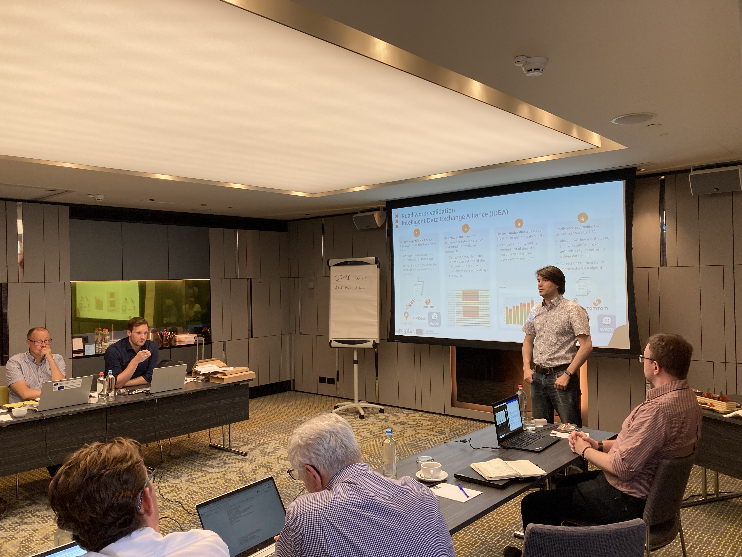After successful Steering Committees in Catania, Munich and Ghent, it was now to Amsterdam and Rijkswaterstaat to host the fourth MERIDIAN Steering Committee. Monday the 12th of July started with a joint lunch to welcome each other and catch up on recent activities at the Park Plaza Victoria. Afterwards we all went up to start the Steering Committee with two task presentations.
Vincent Lau delivered a comprehensive presentation highlighting the potential benefits of data sharing between Road Operators and service providers in upholding public services. Specifically, the focus was on roadwork information and information on closed roads. Notably, the City of Amsterdam stands to benefit from cost-effective access to traffic information, courtesy of a robust framework contract that furnishes comprehensive data for the entirety of the Netherlands.
The provision of data to the National Access Point (NAP) will become mandatory starting from the end of 2023, but currently not enforced enough. For interested partners, a direct contact with Dutch NAP can be established via the Dutch NCs to discuss further.

Furthermore Marjolein Masclee has provided an update on the EPICS proposal, revealing that it has unfortunately been declined. While the evaluation results were mostly positive, the lack of clearly defined criteria for measuring the success of the Action was a key factor in the decision. Interested parties seeking further information on potential next steps are encouraged to reach out to Marjolein directly.
The day ended with a team building activity, where multiple teams competed with one another during a Scavenger Hunt through the city of Amsterdam, and a canal cruise dinner.
Tuesday, the second day of the Steering Committee, a collaborative discussion was started on communication products, such as the roll-ups and web design. A fruitful discussion for the further development for the communication products.
However, the day was highlighted with the “We are MERIDIAN” workshop, in which our partners were divided into three groups and answered the following questions:
- What do you/your companies expect from MERIDIAN?
- What should be the goal of MERIDIAN?
- What would you like to read about MERIDIAN in the newspaper in 2026?
Further on in this newsletter, you will find more information about this workshop.
In the afternoon some in depth presentations were scheduled. Vincent Lau provided a summary of the Berlin meeting, capturing the key points from the slides presented to the group. Björn reported on Cross Corridor Cooperation and the ITS EC in Lisbon and Alberto Cozzi presented on ACCESSMILE, a project with a particular focus on addressing three pivotal topics: transport flow management and vehicle booking systems, gates and entry/exit tools, as well as cargo bundling and tracking. The ultimate goal is to find effective solutions in these areas, enabling improved efficiency and effectiveness in the last-mile freight operations within the region.

André Ingelse delivered a comprehensive presentation on Safety Priority Cases, focusing on the use cases that were identified. These use cases include Jam Tail Warning,
Emergency Vehicle Approaching, SRTI, Traffic Laws, and Smart Routing. The primary beneficiaries of these use cases are road users, including car and truck drivers, within the Netherlands. The implementation and execution of these use cases were facilitated through contracted partners.
All in all a packed Steering Committee, with lots of good discussion on multiple topics. Many thanks to all the participating partners. See you all in Dublin!!


